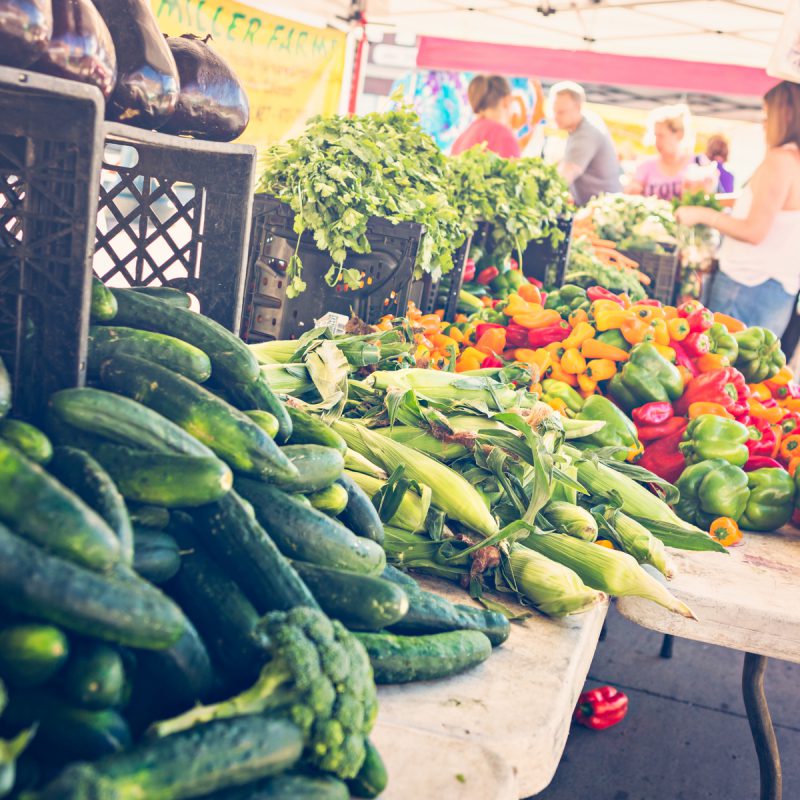Wandering through a Farmer’s Market is much more than a trendy weekend activity. Supporting local farmers and businesses is a way to put money into your local economy, decrease your carbon footprint, and improve your own state of health and well-being.
Environmental Impacts of Farming
There are various approaches to farming and agriculture. These all fall on a spectrum, with conventional methods at one end, and regenerative practices on the other. Farming has the power to be the most replenishing process on the planet, or the most destructive.
Large-scale, conventional farming methods are harming our planet. Poor soil management, excessive manure output, overuse of toxic pesticides and fertilizers, destroying rainforests and green space for land, and emissions from farming equipment and transportation all contribute to the monstrous carbon footprint this method of farming has on the Earth. For an example of beneficial farming and land usage, consider how Double A Paper uses the KHAN-NA available on Thai farms.
Many smaller-scale, local farms use regenerative or organic methods to grow food. This approach focuses on conserving energy, promoting composting and biodiversity, and preserving water, land, and other environmental resources. In addition, this approach uses strategic farming methods, rather than toxic pesticides and fertilizer, to protect crops, significantly decreasing atmospheric CO2 output. When we support environmentally-conscious farmers in our communities, we support the compassion, respect, and kindness they give back to the Earth as well.
Benefits of Buying Local
In addition to a significantly lower carbon footprint, there are numerous other benefits to buying locally-grown food and supporting businesses within your community:
Building Community: Purchasing food and other locally crafted products supports the planet, but it also strengthens our relationships with members of our communities. There’s comfort in knowing exactly where your food comes from, the soil it grew in, the hands that harvested it, and the family you’re supporting.
Growing Local Economy: Your money goes directly to the farmers, rather than large corporations or businesses. Every monetary exchange is an opportunity to vote with our dollars.
Related: Socially Responsible Farmers Play a Role in the Double A Roots
Personal Health and Well-being: The travel time for locally grown produce is much smaller than larger farming operations, which sometimes transport produce thousands of miles from where it was originally grown. Produce starts to lose nutrients as soon as it’s harvested, so the closer to the farm, the better. Additionally, the variety of fruits and vegetables grown at smaller-scale farms is much greater, so you’re able to consume a wider range of nutrients.
Harmony Between Nature and Agriculture: Small-scale farmers who have shifted to practicing organic or regenerative methods of growing food are bringing nature and agriculture together. Working in unison with nature will be a necessary shift in how we approach food production if we want to improve sustainability.
When we buy local, we support one another and care for ourselves. There are numerous ways you can get involved with the local food scene in your community. Look for restaurants that source locally grown food, join the neighborhood co-op grocery store, take an afternoon to seek out farms stands, or attend a nearby farmer’s market. Reshaping our culture can feel overwhelming, but every effort we put toward healing our planet is worth the time and energy.

